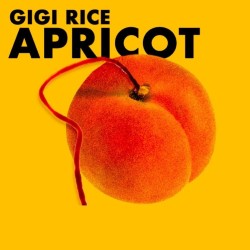EDINBURGH, SCOTLAND — After getting turned around and ending up in the wrote venue, I attended a show I was not initially planning on called Apricot, and was treated to a very thought provoking 50 minutes about reproductive rights that actually looked at all sides in a way that was thoughtful and respectful to all sides of the argument.
The story follows two young friends Angel and Gina, who approach sex and pregnancy with very different attitudes. They are arguably too young to be dealing with these things, but as a therapist of teenagers, I know that in fact they are dealing with these things every single day.
The first thing that struck me was the fact that they actually covered this very controversial topic and looked at what it might be like for everyone. Angel, played by Jazz Tizzard, is a character who chooses to get an abortion, her friend Gina, played by Lucy Nicholson, chooses to keep her baby. Written by Gigi Rice, the task of writing this is pretty daunting. We see the friends fight about birth control, tell lies to each other, and worry about parents and opinions. Later in the show, Angel’s boyfriend, Caleb, played by Finlay Vane Last, shows him wanting her to keep a baby she has already miscarried naturally. It is here that Rice’s writing was quite effective in helping the audience feel empathy for the father, the mother, and the friend, and their different opinions on the matter. Many times these arguments leave one feeling like the villain and the other feeling like the morally superior. I was quite impressed with the strong ability that Rice had to balance all of this.
There are moments of emotional and actual betrayal. Regular teenage and young adult conversations about anatomy, life goals, and morals. I also appreciated that none of the characters pushed hard to make one of the characters completely change their opinion. It is rare to find a situation where we do not allow people to have their own opinions without forcing our thoughts on others. Tizzard and Nicholson did an excellent job of playing friends who have to deal with both high school issues and pretty big stakes such as pregnancy, perhaps not understanding the full ramifications of their situations and their choices and it shows with how quickly they move from one topic to another. Having teenage clients and children, this felt all too real.
The set and lighting were all minimal, as is common with the Fringe. This all allowed me to focus more on the story, which is really one of the benefits of Fringe. This is a play that I would like to see built up more, and have some workshopping and processing of storyline. I feel there is more of a story to be told that is not being fully developed yet.
[box] Apricot played its last show August 10th. For information about the Fringe Festival see edfringe.com [/box]
